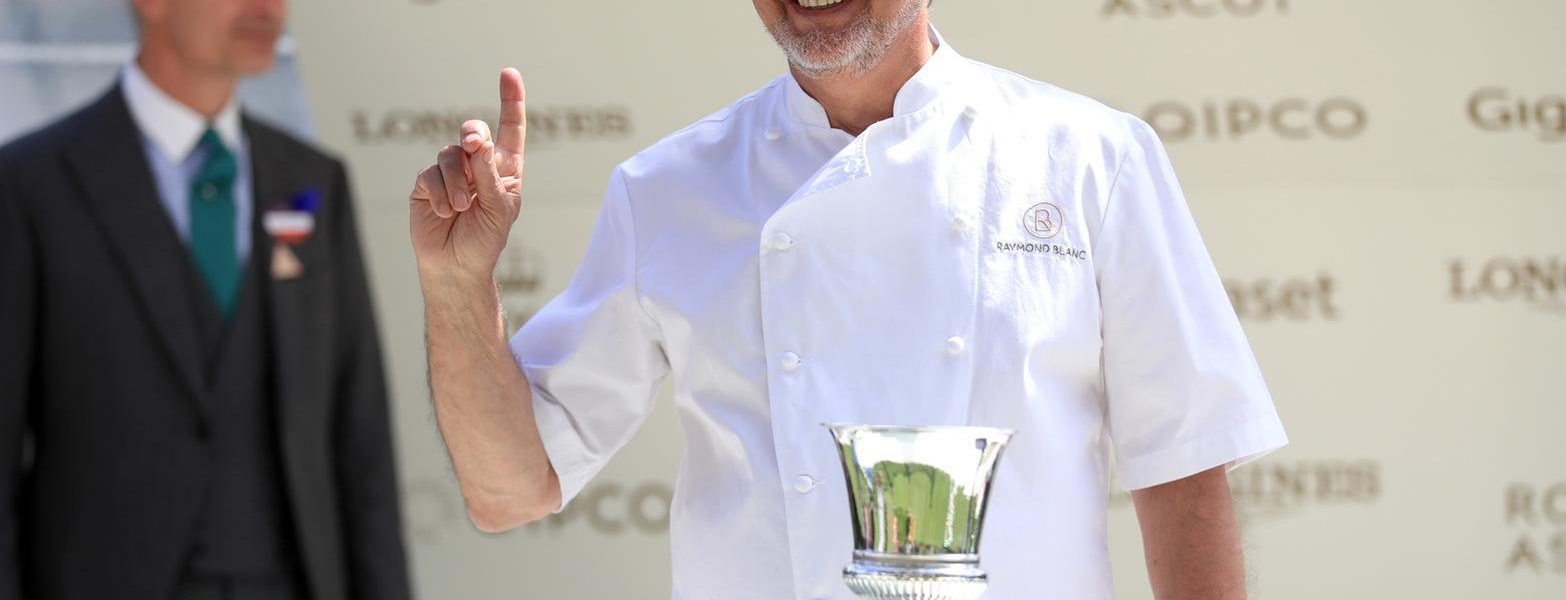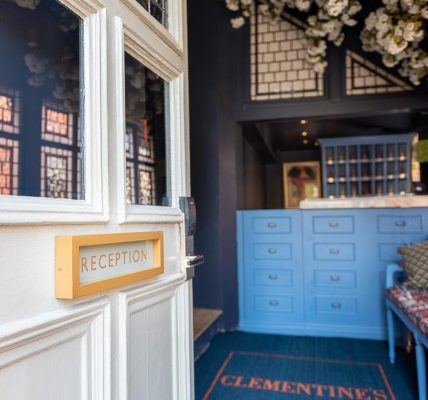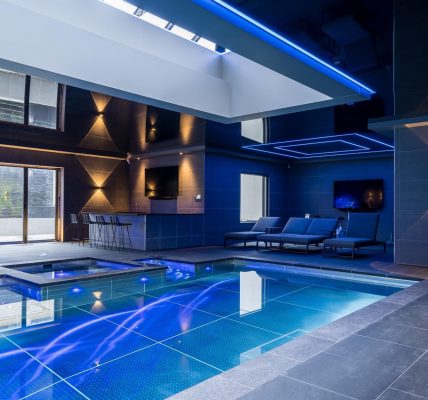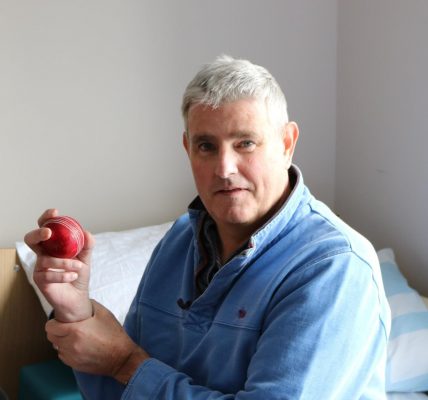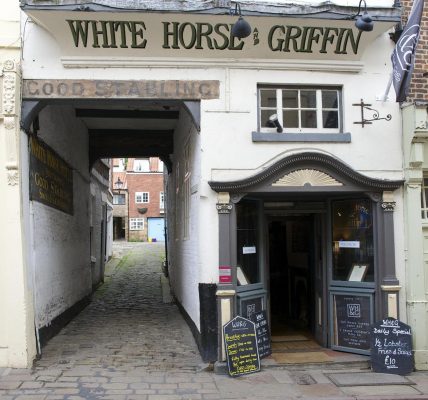Raymond Blanc on his narrow escape from Covid, eating hospital food for a month and his excitement at restaurant reopenings in Leeds and beyond
Raymond Blanc on his narrow escape from Covid, eating hospital food for a month and his excitement at restaurant reopenings in Leeds and beyond
Chef Raymond Blanc talks to Ella Walker about his experiences of hospital food after needing a month of treatment while suffering with severe Covid, and the joy of simple cooking.
Raymond Blanc is in excellent spirits. Outdoor dining is back on the menu, meaning the chef’s Brasserie Blanc restaurants are reopening – and despite the “freezing” conditions, the Blanc empire has “created some beautiful open marquees” complete, of course, with heaters.
Le Manoir aux Quat’Saisons, his two-Michelin starred Oxfordshire restaurant, is also fully booked for the next six months. The Leeds Brasserie Blanc in Victoria Mill will be opening on May 17 and is already taking bookings.
It is cause for “a bit of joy in our team and of course a lot of laughter and celebration amongst our guests”, says Blanc on the phone. But he is cautious too. “There’s some reserve because, as you know, you don’t know what’s going to happen next.
“We all pray on the wing, so to speak,” he continues. “We pray we’re going to learn to live with Covid and it’s not going to destroy people’s lives nor businesses anymore.”
Speaking to in 2017 as he visited his Leeds restaurant to celebrate the 10th anniversary of its opening, Blanc gave a modest answer when asked for the recipe to running a successful restaurant.
“You make mistakes and you learn from them, ” he said at the time. “It’s all very well for you to have the vision but if you don’t have the right team around you, you’ll be in trouble. They are the ones at the coal face every day and if they don’t own your vision it won’t work. A lot of restaurants explode like stars and a year later they disappear.”
If you’re in the restaurant game, the pandemic has been particularly brutal, and for Blanc, 71, it took a directly personal toll too. Following a cough and a positive Covid test result, he found himself admitted to the Covid high dependency unit at John Radcliffe Hospital, Oxford, and was there for a month.
“The first two weeks I was completely out, it was extraordinary,” he recalls. “You didn’t know which way it would go.”
Having spent much of the pandemic up until that point “cooking my heart out”, you’d think the shift to hospital food and being unable to fix his own dinners would’ve added to an already scary and difficult situation, but Blanc is pragmatic.
“It was really, really very severe Covid and that means you didn’t think of it,” he says now.
“Hospital food reminded me maybe that I missed my own cooking, but Natalia (Traxel), his long-time partner, would always bring me some lovely food from home” – but this was only after three weeks, when Blanc was more “with it” and able to appreciate eating properly again.
He is not remotely scathing about the hospital fare he encountered though. It is “not renowned and I can understand it, there is so little budget,” he notes, but as a patient, “you’re not looking for a three-star Michelin meal, you just eat whatever is in front of you. And I must say, some of it was very, very good, especially the desserts.
“Many chefs, many establishments, have tried to change the food in hospitals, but there’s always this issue of cost,” he continues. “I think they do their best with what they have. I’m amazed actually, the food always came piping hot, on time. I was very grateful.”
However, when he “started to regain a bit of colour on my cheeks”, he did begin to rather miss a nice glass of wine. “It took me two-and-a-half months before I could drink any wine, because I couldn’t enjoy it! It was like vinegar.” This was less to do with Covid, he says (“I never lost my taste, that’s one of the most remarkable things”), and more due to “all sorts of medicines they give you; your tongue is like a cheese grater.”
The flavour of his new book, , is very much tinged by his and the collective experiences of pandemic life – be it how many of us have become increasingly connected with what we’re eating, where it’s come from and who grew it, or just the fact we’ve done so much more cooking than before.
“This little book is really all about the joyful experience of cooking – it’s my cooking, from my home to yours,” explains Blanc with real feeling. It is full of “unfussy recipes. They are driven by simplicity, by seasonality, by real values. And you don’t need expensive gadgets, no sous vide machines or anything like that. It’s enjoyable.”
It is also imbued with the love he has for his late mother, Maman Blanc, and his respect for French author and scientist Edouard de Pomiane, whose book, , was the initial blueprint for .
“He was a genius, in so much he understood that the world was changing,” says Blanc of Pomiane. “He had already noticed in his time that people didn’t take the time to eat properly.”
The need to be able to whip up dinner in 10 minutes became less important once we were all in lockdown though. Cooking suddenly became a source of relaxation, comfort and distraction for lots of us. “It’s wonderful to see that small revolution,” says Blanc.
So rather than a place for swift recipes, became a book that instead “demystifies cooking, it simplifies it. It makes it accessible. It gives you confidence.” And technique is key.
“Once you can pan fry a steak, you can pan fry anything,” says Blanc. “This technique will give you thousands of recipes.”
Many of the practical and logistical aspects – from relying on water instead of stock, to the mantra ‘You shalt not waste’ – come courtesy of his mother, who died in 2020 aged 97.
“I come from a working background, and we didn’t have very much money,” says Blanc, who grew up in the Franche-Comté region of France, and retains his thick, melodic French accent, despite having lived in England for decades.
“We had a huge garden. My mum was a former farmer, so she really knew all about simple home cooking because she had to feed a family of seven – and every day.”
The book is peppered with Blanc’s memories of her, including what he calls the “French paradox”: her love of rabbits.
“Maman would feed the rabbits and she would talk to them,” he says, a smile curving round his words. “Sunday was a big dilemma.” Because of course, family dinner on Sunday was a big deal, and rabbit was in the offing – braised with white wine and mustard.
“She would eat her rabbit, and at the same time she was smiling, she was also crying,” remembers Blanc with a laugh. “She loved the taste of the rabbit.”
he says is “a great tribute to my Maman Blanc. This is my gift to her because her gift to me has been enormous in my life: a foundation and my values towards foods, towards people.” You can feel it on every page.
Support The Fond News and become a subscriber today. Your subscription will help us to continue to bring quality news to the people of US. In return, you’ll see fewer ads on site, get free access to our app and receive exclusive members-only offers. Click here to subscribe.

